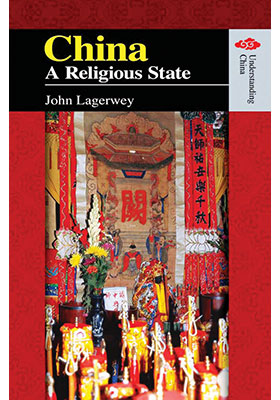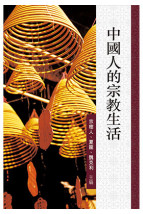China
A Religious State
(中國:宗教之邦)
ISBN : 978-988-8028-04-7
Understanding China: New Viewpoints on History and Culture
March 2010
246 pages, 6″ x 9″
- HK$125.00
Ebooks
Over the last forty years, our vision of Chinese culture and history has been transformed by the discovery of the role of religion in Chinese state-making and in local society. The Daoist religion, in particular, long despised as “superstitious”, has recovered its place as “the native higher religion.” But while the Chinese state tried from the fifth century on to construct an orthodoxy based on Confucianism, Daoism, and Buddhism, local society everywhere carved out for itself its own geomantically defined space and organized itself around local festivals in honor of gods of its own choosing—gods who were often invented and then represented by illiterate mediums. Looking at China from the point of view of elite or popular culture therefore produces very different results.
John Lagerwey has done extensive fieldwork on local society and its festivals. This book represents a first attempt to use this new research to integrate top-down and bottom-up views of Chinese society, culture, and history. It should be of interest to a wide range of China specialists, students of religion and popular culture, as well as participants in the ongoing interdisciplinary dialogue between historians and anthropologists.
“China: A Religious State is a pathbreaking overview of Chinese religious traditions that represents the fruition of three decades of research. It is also noteworthy for its solid interdisciplinary approach, with the author convincingly demonstrating the importance of ethnography in the study of Chinese communal religions.” —Paul Katz, Academia Sinica, Taiwan
“China: A Religious State is in its fundamental ideas no less than brilliant. It constitutes a redefinition of the intellectual boundaries artificially drawn around the official vision of history that has so long dominated Chinese studies. Professor Lagerwey offers a much needed integral vision of Chinese society and religion.” —Mark Meulenbeld, University of Wisconsin-Madison
“A culmination of decades of research, study, and reflection, Lagerwey’s book provides a new perspective that thoroughly corrects previous assumptions about religion in China. Indeed, this book should challenge long-held opinions about China, such as the centrality of ancestor worship, which Lagerwey argues became common practice only after the Ming reform in the mid-1500’s that allowed commoners to worship their ancestors.” —Gil Raz, Journal of Chinese Religions






